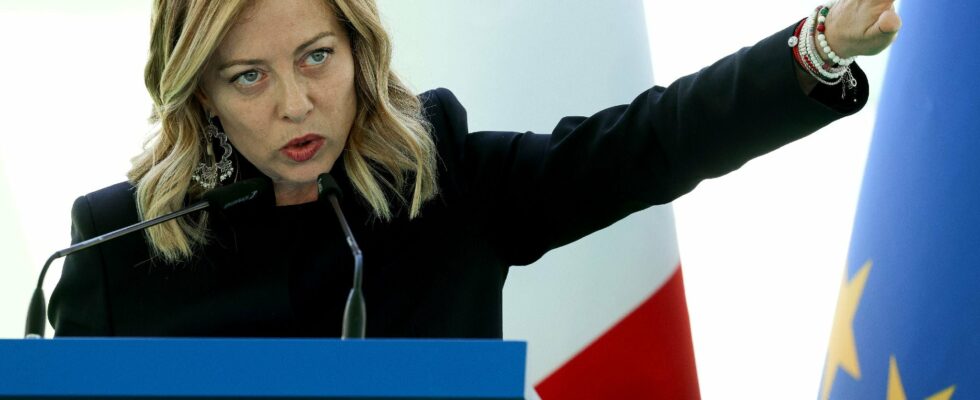Tea Economist was not mistaken in dedicating its latest cover to Giorgia Meloni staring us straight in the eyes, framed by Ursula Von der Leyen and Marine Le Pen, both in profile. The head of the Italian government keeps repeating that she is now “indispensable”. While the European vote inflicted historic humiliation on the parties of Emmanuel Macron and Olaf Scholz, his far-right party, Fratelli d’Italia, came well ahead, coming close to 29% of the vote. Giorgia Meloni is thus the only leader of one of the major EU countries to emerge strengthened. “I am proud that our nation is presenting itself at the G7, in Europe, with the strongest government of all” she immediately welcomed.
If her victory further reinforces the credibility gained during her twenty months in power, it is above all from the debacle of Emmanuel Macron that she intends to benefit. The weakness of the French president, with whom she only had an understanding of reason and who is threatened with cohabiting with a far-right government, offers her unprecedented room for maneuver. During the electoral campaign which has just ended, she advocated in Brussels what she succeeded in doing in Rome: a union of all the rights in the Parliament of Strasbourg to send the left back into opposition by excluding any participation in a majority with the socialists.
Numerous divergences within the radical rights
However, it will have to use the pragmatism which characterizes it by taking note of the strong push of the various far-right groups which grant their two main groups 13 additional seats. United, the members of its ECR group (European Conservatives and Reformists), and that of Identity and Democracy (ID), in which 30 MEPs from the French National Rally will sit, and finally the hundred non-aligned radical parliamentarians (of which Fidesz is a part Hungarian of his friend Viktor Orban) can constitute the second most powerful group in the future European Parliament. But from the economy to support for Ukraine and links with NATO, there are numerous differences within the radical rights, making such an alliance hypothetical, which would upset the balance on which the community authorities rest.
Giorgia Meloni will not oppose the reappointment of Ursula von der Leyen as head of the European Commission. Italy cannot afford to be isolated. It needs tolerance from Brussels regarding the granting and management of billions of euros from its national recovery plan, but also flexibility in respect of the new budgetary stability pact, without forgetting solidarity essential in the management of migratory flows.
Giorgia Meloni thus responds timidly to the calls for union between the ECR and ID groups launched by Marine Le Pen. Whoever the next tenant of Matignon is, it is always with Emmanuel Macron that she will have to deal during major European summits. Above all, she does not want to weaken her relations with the EPP (European People’s Party, center-right and right) of which her deputy prime minister Antonio Tajani is a faithful representative. The leader of Forza Italia achieved the feat of achieving a better result than Matteo Salvini, the leader of the League, who launched into a populist one-upmanship and insisted on a rapprochement with the Germans of the AfD. “The problem is not only the AfD, but also the RN, declared Antonio Tajani. Le Pen wants to leave NATO and is certainly not a Europeanist. We cannot think of governing Europe by being against.”
The former commissioner, vice-president of the Commission and president of the European Parliament, is the ideal emissary to deepen relations with the EPP. He would also be an ideal backup name to present if Ursula von der Leyen fails to hold on to her position. But this is not what Giorgia Meloni aims for for her country. Agriculture, Industry, Defense and even energy represent essential portfolios for its electorate or the influence of the peninsula. An Italian vice-presidency of the European Commission with reinforced powers and an extended scope of competence could also satisfy her. Giorgia Meloni will have plenty of time to engage in a show of force against her weakened German and French partners by hosting them this weekend in Puglia for the G7.
.
